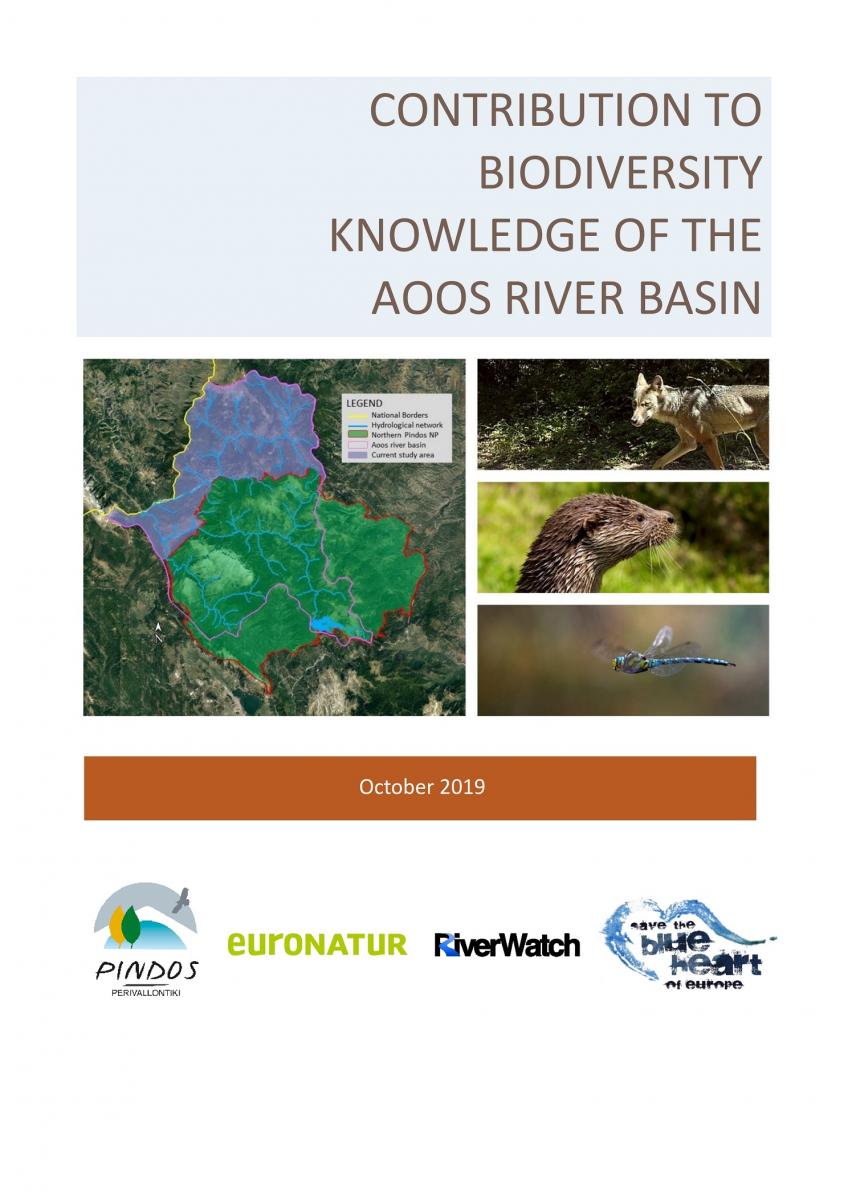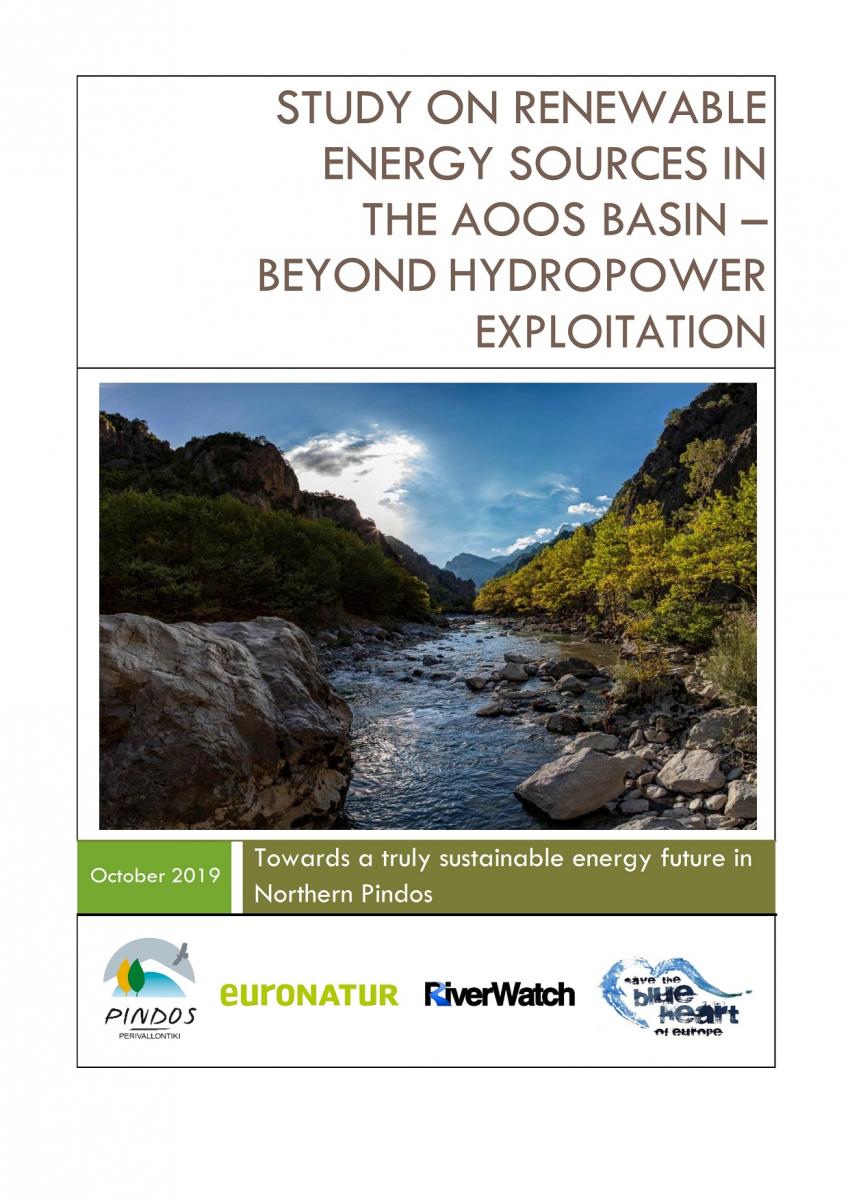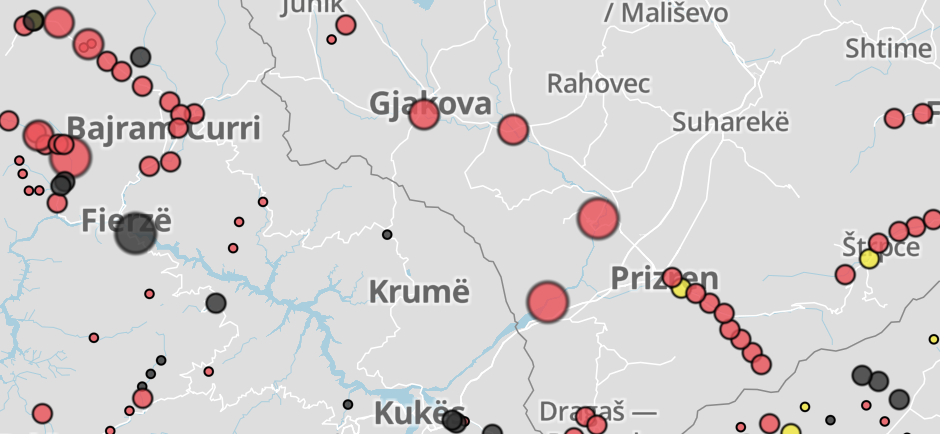On her first 70 km, the Vjosa flows through Greece territory and is called Aoos. Apart from the one single dam 10 km below the source of Aoos, the river is near natural, representing all types of river ecosystems, including canyons, braided parts and meandering stretches. 50 of the 70 km in Greece are already protected by the Northern Pindos National Park. However, the last 20 km towards the border with Albania remain unprotected. These two studies commissioned by Pindos Perivallontiki provide evidence of the region’s biological importance as well as the need for a transboundary Wild River National Park and show that further development of hydropower is not necessary to reach the RES development goals.

Contribution to biodiversity knowledge of the Aoos river basin
The present biodiversity study has been conducted on the Greek part of the Aoos-Vjosa river. It focuses on insect species related to water (Odonata), as well as on large mammals, either directly related to the riverine ecosystems (otter) or indirectly (carnivores and ungulates). The study’s results underline the great biological importance of the non-protected part of Aoos basin for the conservation of the studies' key-species. The scientific evidence provided by the study highlight the crucial need to expand the protected area in Greece towards the Greek-Albanian borders, the need for the protection of the river from future hydropower constructions and, even more, the need to establish a Transboundary Wild River National Park – Vjosa/Aoos. Commissioned by Pindos Perivallontiki
Study: Contribution to biodiversity knowledge of the Aoos river basin
|
 Renewable energy sources in the Aoos basin Renewable energy sources in the Aoos basin
This study shows that further development of hydropower in Greece, and particularly in the Aoos river basin, is a strategy that has detrimental environmental impacts. Moreover, expansion of hydropower is not necessary for reaching the RES (Renewable Energy Sources) development goals of the country. This study, commissioned by Pindos Perivallontiki, includes:
- An overview of Greek energy policy.
- An assessment of the role of hydropower in Greek energy policy and its implications for Aoos basin.
- A presentation of alternative RES development scenarios that do not prioritize hydropower in energy planning and outlook for (alternative/non-HP) developments in Aoos basin.
Study: Renewable energy sources in the Aoos basin
|

 Save the Blue Heart of Europe - A campaign for the protection of Balkan Rivers
Save the Blue Heart of Europe - A campaign for the protection of Balkan Rivers